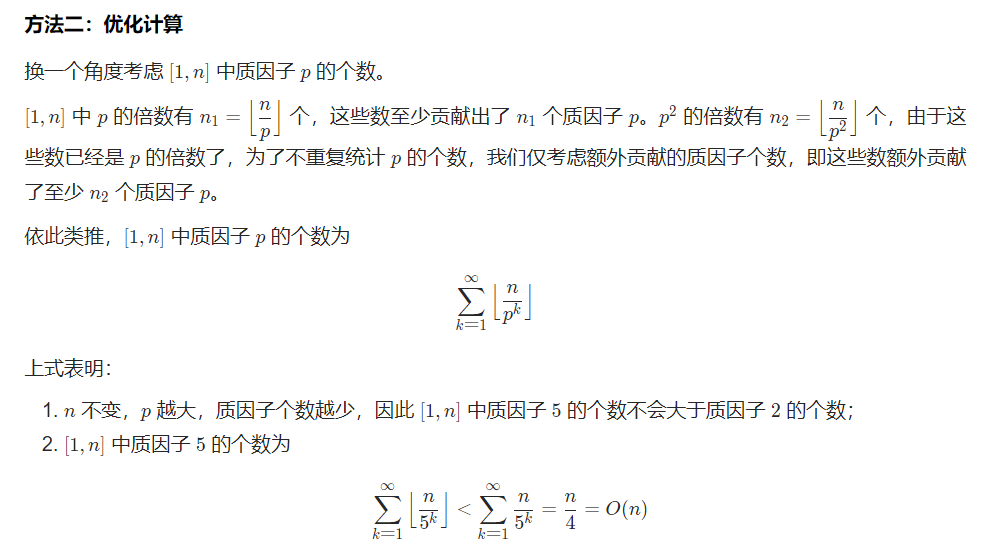请注意,本文编写于 1228 天前,最后修改于 734 天前,其中某些信息可能已经过时。
目录
172. 阶乘后的零
题目

思路
n!中有几个0与[1,n]中出现多少个5的因数有关。例如7! = 1×2×3×4×5×6×7出现了1次5,故最后末尾会出现1个0。26!中出现了5,10,15,20,25其中5的个数为1+1+1+1+2=6,故最后末尾会出现6个0。
解法
c++class Solution {
public:
int cal(int k){
if(k==0)
return 0;
else if(k%5==0){
return cal(k/5)+1;
}
return 0;
}
int trailingZeroes(int n) {
int count = 0;
for (int i = 0;i<n+1;i+=5){
count += cal(i);
}
return count;
}
};
- 时间复杂度:,其中为数组的长度,需要遍历一遍数组
- 空间复杂度:,仅使用常量空间
补充

所以可知:
c++class Solution {
public:
int trailingZeroes(int n) {
int ans = 0;
while (n) {
n /= 5;
ans += n;
}
return ans;
}
};
复杂度:
- 时间复杂度:
- 空间复杂度:
本文作者:Geaming
本文链接:
版权声明:本博客所有文章除特别声明外,均采用 BY-NC-SA 许可协议。转载请注明出处!
目录